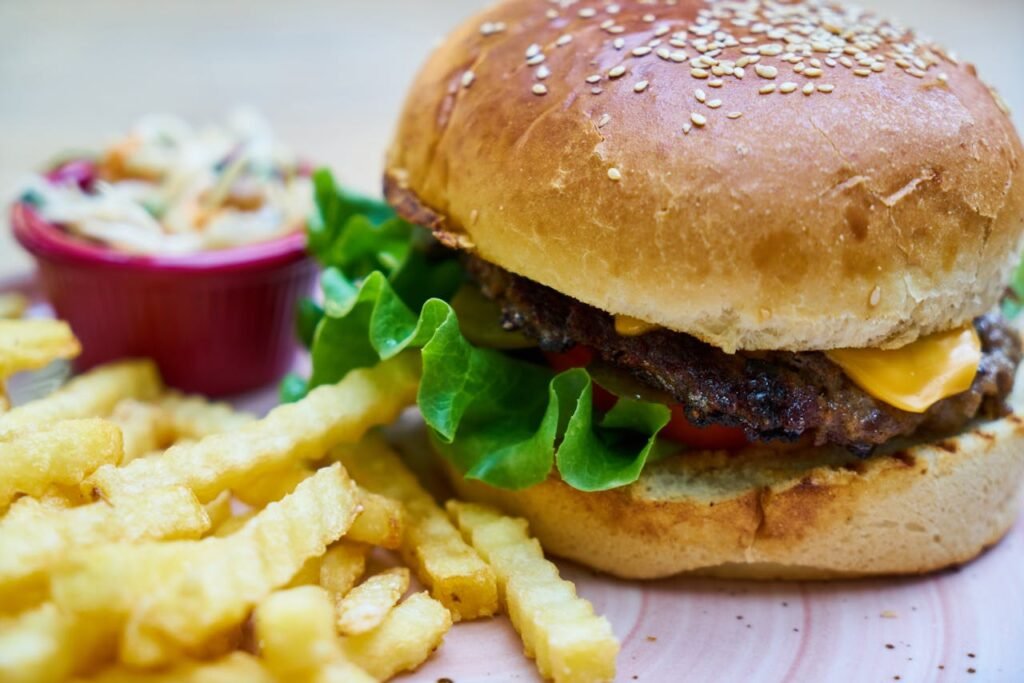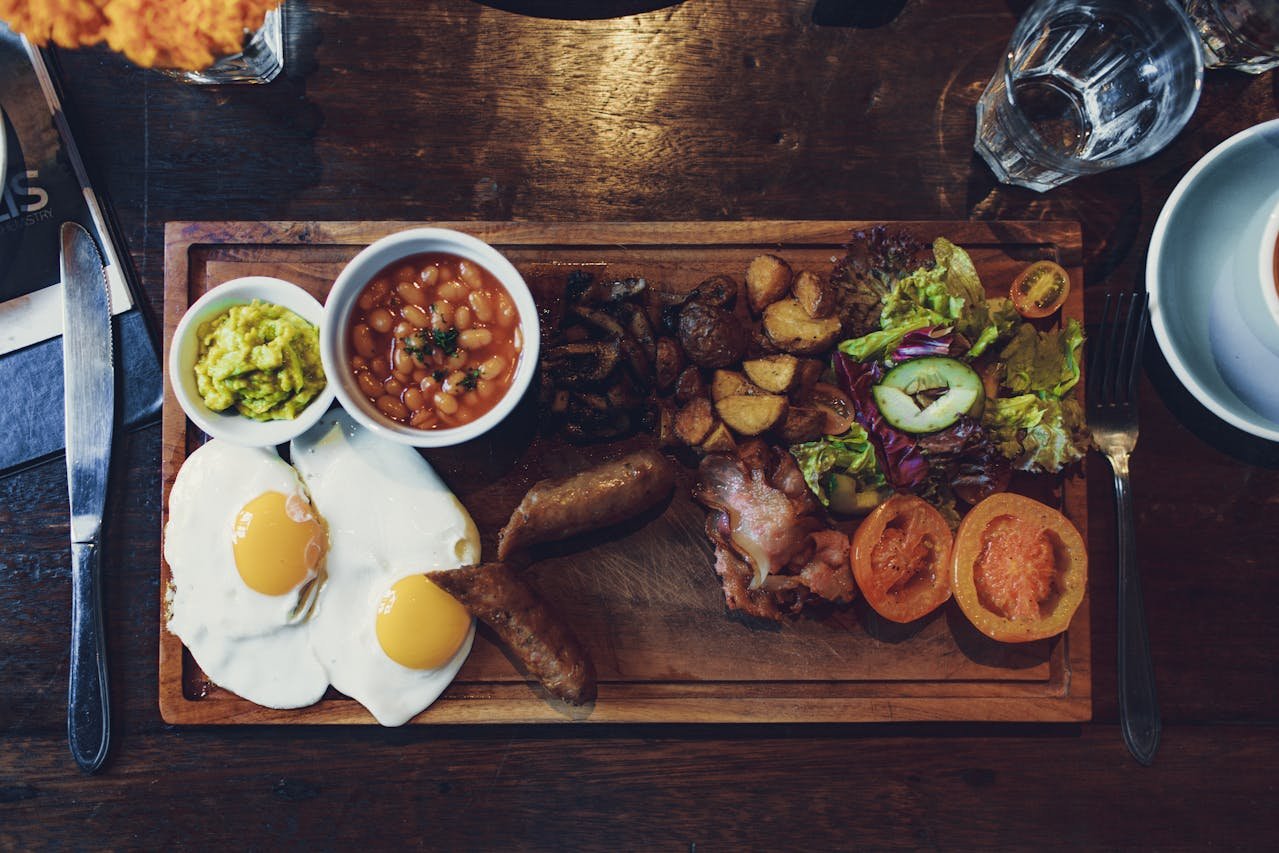Proper nutrition is crucial for recovery, especially for those leading an active lifestyle. Whether you’re an athlete, a fitness enthusiast, or simply someone who enjoys regular exercise, what you eat significantly impacts how well and how quickly you recover. Unfortunately, many individuals unknowingly make nutritional mistakes that can hinder this process.
Understanding these common pitfalls can help you make better dietary choices. Small changes can lead to significant improvements in your recovery and overall performance. In this article, we will explore some of the most common nutrition mistakes and provide practical advice on how to avoid them.
By addressing these issues, you can optimise your recovery, reduce the risk of injury, and enhance your overall health. Let’s delve into these common mistakes and discover how to correct them for better results.
Skipping Meals
Skipping meals is a common mistake that can seriously impact your recovery. When you exercise, your body uses up stored energy, and it needs fuel to repair and rebuild muscles. Missing meals means missing out on essential nutrients that aid this process.
Eating regularly ensures that your body gets a constant supply of nutrients. This helps maintain energy levels and supports muscle recovery. Aim to eat balanced meals that include protein, carbohydrates, and healthy fats. This balance is vital for providing sustained energy and aiding recovery.
If you’re too busy or not hungry after a workout, consider smaller, nutrient-dense snacks. Options like a banana with peanut butter or a smoothie can provide the necessary nutrients without feeling too heavy. Prioritising meal timing and consistency can make a significant difference in your recovery.
Inadequate Protein Intake
Protein is essential for muscle repair and growth. Not consuming enough protein can delay recovery and reduce muscle gains. Many people, especially those new to fitness, may underestimate their protein needs.
Incorporate high-quality protein sources into every meal. Lean meats, fish, eggs, dairy, legumes, and nuts are excellent options. Aim to include a source of protein in your post-workout meal to kickstart the recovery process.
For those with higher protein requirements or dietary restrictions, protein supplements can be a convenient option. However, whole foods should be the primary source of nutrients whenever possible. Tracking your protein intake can help ensure you’re meeting your daily needs.

Overlooking Carbohydrates
Carbohydrates are often misunderstood in the fitness community. While some fear they will lead to weight gain, carbohydrates are crucial for replenishing glycogen stores depleted during exercise. Neglecting carbs can result in fatigue and hinder recovery.
Include complex carbohydrates in your diet, such as whole grains, fruits, and vegetables. These foods provide sustained energy and help restore glycogen levels. Timing is also important; consuming carbs shortly after your workout can enhance glycogen replenishment.
Avoid simple sugars and processed carbs, which can cause energy spikes and crashes. Instead, focus on nutrient-dense, high-fibre carbohydrates that provide lasting energy and support recovery.
Not Staying Hydrated
Hydration is often overlooked but is essential for optimal recovery. Dehydration can lead to muscle cramps, fatigue, and slower recovery times. It’s vital to replenish fluids lost during exercise.
Drink water regularly throughout the day, not just during workouts. Pay attention to your body’s signals and drink when you’re thirsty. For intense workouts or those lasting longer than an hour, consider electrolyte-rich drinks to replace lost minerals.
Monitor your hydration status by checking the colour of your urine. Pale yellow usually indicates proper hydration, while dark yellow can be a sign of dehydration. Staying well-hydrated supports overall health and enhances recovery.

Ignoring Micronutrients
While macronutrients like protein, carbohydrates, and fats get a lot of attention, micronutrients are equally important. Vitamins and minerals play critical roles in muscle function, energy production, and recovery.
Ensure you’re getting a variety of fruits and vegetables to cover your micronutrient needs. Leafy greens, berries, nuts, and seeds are packed with essential vitamins and minerals. Pay particular attention to calcium, magnesium, potassium, and vitamins C and D, which are vital for recovery.
If you struggle to meet your micronutrient needs through diet alone, consider a high-quality multivitamin. However, whole foods should always be your first choice for nutrient intake.
Relying on Supplements
Supplements can be beneficial, but they should not replace whole foods. Over-reliance on supplements can lead to nutrient imbalances and neglect of a balanced diet. It’s important to use supplements wisely and not as a substitute for real food.
Prioritise getting your nutrients from whole foods. Use supplements to fill in gaps where necessary, such as protein powders for post-workout recovery or a multivitamin if you have specific deficiencies. Always consult with a healthcare professional before starting any new supplement regimen.
Remember, supplements are meant to complement a balanced diet, not replace it. Focusing on whole foods will provide a wider range of nutrients and benefits.
Consuming Too Much Processed Food
Processed foods are convenient but often lack the nutrients needed for optimal recovery. They can be high in unhealthy fats, sugars, and artificial additives, which can hinder your recovery and overall health.
Focus on whole, minimally processed foods. Fresh fruits, vegetables, lean proteins, and whole grains should make up the bulk of your diet. These foods provide the essential nutrients your body needs to recover and perform at its best.
Preparing meals at home can help you control the ingredients and ensure you’re eating nutrient-dense foods. Simple meal prepping can save time and make healthy eating more convenient.

Neglecting Healthy Fats
Healthy fats are often misunderstood and avoided, but they are crucial for recovery. Fats support hormone production, reduce inflammation, and provide long-lasting energy.
Include sources of healthy fats in your diet, such as avocados, nuts, seeds, olive oil, and fatty fish. These fats are beneficial for overall health and aid in the recovery process.
Avoid trans fats and excessive saturated fats, which can contribute to inflammation and negatively impact recovery. Instead, focus on incorporating a variety of healthy fats into your meals.
Poor Meal Timing
When you eat is just as important as what you eat. Poor meal timing can lead to energy crashes and slow recovery. Eating at irregular intervals or too infrequently can leave your body under-fuelled.
Aim to eat every three to four hours to maintain stable energy levels and support recovery. Post-workout nutrition is particularly important. Consuming a balanced meal or snack within 30 minutes to an hour after exercise can significantly enhance recovery.
Plan your meals around your workout schedule to ensure you’re providing your body with the nutrients it needs at the right times. Consistent meal timing can help optimise your performance and recovery.
Not Listening to Your Body
Your body is a great communicator, but many people ignore its signals. Not listening to hunger cues, fatigue, or other signs can lead to nutritional imbalances and poor recovery.
Pay attention to how your body responds to different foods and meal timings. Adjust your diet based on your personal needs and how you feel. If you’re constantly tired or not recovering well, it might be time to re-evaluate your nutrition.
Listening to your body also means recognising when you need rest. Overtraining without adequate nutrition and rest can lead to burnout and injuries. Balancing exercise, nutrition, and rest is key to optimal recovery.
Conclusion
Proper nutrition is essential for effective recovery. By avoiding common mistakes like skipping meals, neglecting protein and carbohydrates, and not staying hydrated, you can significantly improve your recovery process. Focus on a balanced diet rich in whole foods, listen to your body’s needs, and maintain consistent meal timings.
Making these adjustments can enhance your performance, reduce the risk of injury, and improve your overall health. Remember, small changes in your nutrition can lead to significant improvements in your recovery and well-being. Prioritise proper nutrition and give your body the support it needs to recover and thrive.





